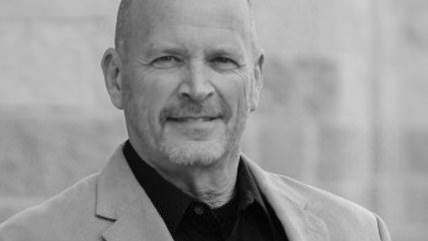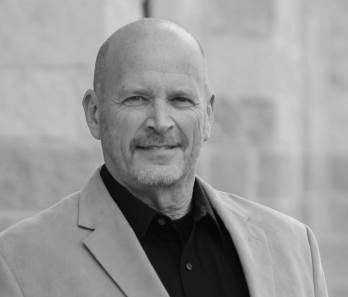A Silly Fight Over What Part of a Cake Counts as Speech
A sweet medium and sour messages


The tale of the Colorado bakery that refused to write anti-gay statements on a cake and now faces an investigation for violating the state's public accommodation laws has gone national. I wrote about it based on the very early news coverage here.
The man who ordered the cake apparently avoided responding to the media at first because he figured they'd just try to spin it to make him look bad, he told the editor in chief of Christian media outlet World News Group. This was an exceedingly dumb decision because it resulted in one-sided stories that point out his refusal to comment, and so the media is absolved of inaccuracies. So now he's talking because, he says, the media got the story wrong … partly because he didn't respond to the media.
Anyway, beyond that unsavvy decision, the gentleman, whose name is Bill Jack, has said that he didn't demand all sorts of offensive anti-gay comments like "God hates gays" on his cake, contradicting what the bakery owner claims. He asked for several religious quotes about sin, but only one was about homosexuality: "Homosexuality is a detestable sin—Leviticus 18:22." The bakery, Azucar Bakery in Denver, said Jack refused to let them make a photocopy of the paper he provided or let them read the words out loud.
In this silly fight, what Jack actually asked the bakery to write matters. Since he's claiming that he is being discriminated against due to his religion, it likely makes a difference whether he was just asking for Bible quotes or some just general anti-gay bigotry (though I'm very certain the word "homosexuality" appears nowhere in the Bible). Eugene Volokh explains some of the complexities of invoking discrimination based on religion here.
And so as this case spins out, we end up with the amusing situation where religious conservative groups are supporting the right of the bakery to refuse business to a religious conservative and the American Civil Liberties Union trying to explain why this is all so very different from a bakery refusing to provide a gay couple a wedding cake at all. The two sides, via BuzzFeed:
"It was clearly Ms. Silva's right to decline to promote a message with which she so clearly disagreed," Jeremy Tedesco, senior legal counsel of Alliance Defending Freedom (ADF), said in a statement to BuzzFeed News. "Ms. Silva should not be forced to use her artistic abilities to further a message with which she sincerely disagrees." …
"Folks are trying to compare the Azucar Bakery story to the Masterpiece Cakeshop case… but in fact the two situations are quite different," ACLU staff attorney Amanda Goad said in an email to BuzzFeed News.
The baker refusing service, she said, is "based on a neutral standard of taste that she would apply to any customer," and is different from barring customers "not because of what the desired cake looked like, but because of who they are."
I just have to shake my head at Goad's invocation of a "neutral standard of taste." Would just any old customer want a cake with an anti-gay message on it? The baker has made it clear that she didn't want to add these words to Jack's cake because she didn't agree with his sentiment. She did not want to be forced to say something with which she did not agree. It was not a "neutral standard."
And I would point out that those bakeries who do not want to make gay wedding cakes haven't refused to completely serve gay customers. They did not agree with the message that is produced by the creation of a wedding cake for gay couples. That is to say, they also refused service because of "what the desired cake looked like."
Wading into all this comes Pulitzer Prize-winning columnist Leonard Pitts Jr., with the exact wrong conclusion for terrible reasons:
And it leaves us wrestling with the tricky question of how to draw a line protecting the rights of same-sex couples to be served while allowing businesses to refuse to participate in bigotry like Jack's. Some, including Slate, have suggested requiring a baker to serve anyone who walks through the door, but exempting her from having to write any message — whether "Congratulations on Your Same-Sex Marriage" or "Burn in H–l, Sodomites" — that offends her.
The problem is, that gives a baker veto power over her customer's freedom of expression. The sentiment on the cake, remember, comes not from the cake maker — she's just the one writing it out in frosting — but from the customer. Will we then exempt a baker who declines to write a message celebrating a mosque's 20th anniversary?
So here's another idea. Maybe Silva should just hold her nose and bake the cake.
No, no, no, no, no, no, no, no, no. That is not what "freedom of expression" means. How can a newspaper columnist not know the difference between government censorship and private free association? Jack's freedom of expression has not been "vetoed" because he can make his own damned cake and decorate it however the hell he wants without having to worry about being sanctioned by the government. That's what "freedom of expression" means. It has nothing to do with using authority of the government to force private actors to help you produce or distribute your message. That is the opposite of "freedom of expression."
Fundamentally, the absurdity of all this arguing is why I've taken the "nobody has a right to cake" purist freedom of association route, rather than trying to navigate legal issues surrounding what is or isn't speech on a cake. At what point does a wedding cake make a statement? Is it the cake itself? Is it when the baker is asked to top it with two grooms or two brides? People are literally asking the government to decide what constitutes "speech" on a cake. Just deal with it yourselves, people!


Show Comments (158)